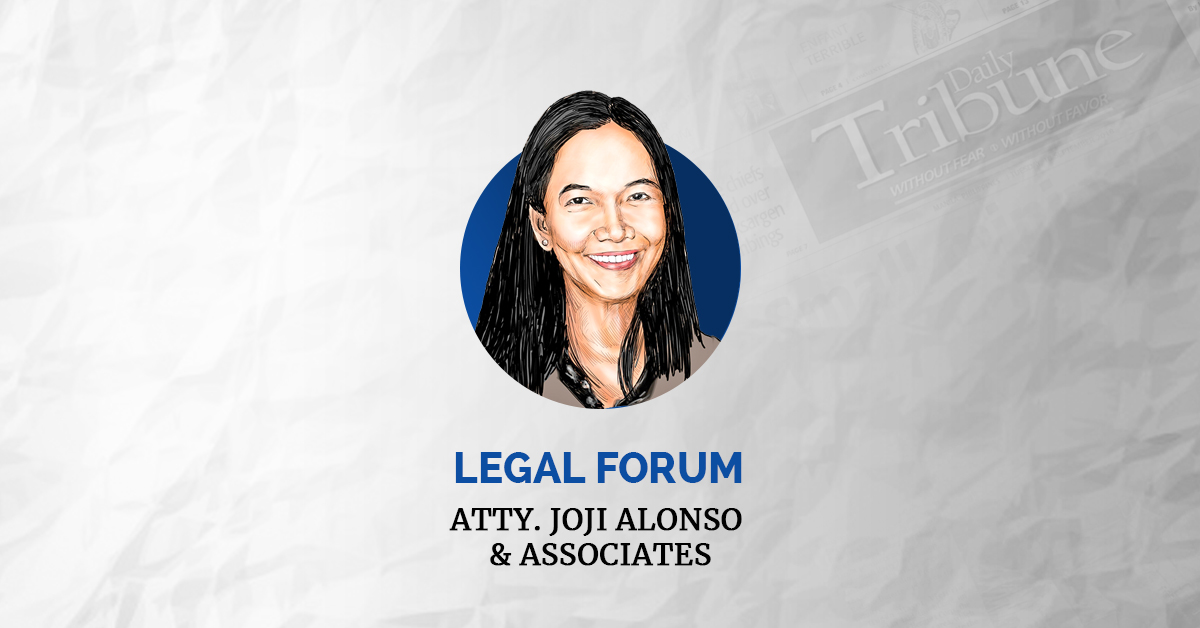Dear Atty. Joji,
I am planning to run for public office in the coming barangay elections. A punong barangay, to be exact. However, I have doubts since my friends told me that I have to quit my job as an office human resource manager to run for the said position. Can you enlighten me on this?
Respectfully,
Jason
***
Dear Jason,
The personal profession of public officials has been on deliberation for quite some time but since it has been resolved, allow me to enlighten you on this matter.
In the resolution of the case of Catu vs Rellosa (A.C. 5738, 19 February 2008), penned by Chief Justice Renato Corona, it is stated that Section 90 of Republic Act 7160, the Local Government Code, and not Section 7(B)(2) of RA 6713, the Code of Conduct and Ethical Standards for Public Officials and Employees, governs the practice of profession of elective local government officials considering that RA 7160 is a special law with a definite scope. The part of the decision says:
“Section 7(b)(2) of RA 6713 prohibits public officials and employees, during their incumbency, from engaging in the private practice of their profession unless authorized by the Constitution or law, provided that such practice will not conflict or tend to conflict with their official functions. This is the general law which applies to all public officials and employees.”
For elective local government officials, Section 90 of RA 7160 governs:
SEC. 90. Practice of Profession.
(a) All governors, city and municipal mayors are prohibited from practicing their profession or engaging in any occupation other than the exercise of their functions as local chief executives.
(b) Sanggunian members may practice their professions, engage in any occupation, or teach in schools except during session hours: Provided, that sanggunian members who are members of the Bar shall not:
(1) Appear as counsel before any court in any civil case wherein a local government unit or any office, agency, or instrumentality of the government is the adverse party;
(2) Appear as counsel in any criminal case wherein an officer or employee of the national or local government is accused of an offense committed in relation to his office;
(3) Collect any fee for their appearance in administrative proceedings involving the local government unit of which he is an official; and
(4) Use property and personnel of the Government except when the sanggunian member concerned is defending the interest of the Government.
(c) Doctors of medicine may practice their profession even during official hours of work only on occasions of emergency: Provided, that the officials concerned do not derive monetary compensation therefrom.
Governors, City Mayors, and Municipal Mayors are prohibited from practicing their profession or engaging in other profession because they are required to render full service in serving the people.
However, no such interdiction is made on the punong barangay and the members of the sangguniang barangay. Expressio unius est exclusio alterius. Since they are excluded from any prohibition, the presumption is that they are allowed to practice their profession. And this stands to reason because they are not mandated to serve full time. In fact, the sangguniang barangay is supposed to hold regular sessions only twice a month.
In view of the foregoing, a punong barangay may practice his profession, may it be the practice of law or the practice of other profession, provided he secures a prior written permission from the head of the Department of the Interior and Local Government.
Hope this helps.
Atty. Joji Alonso
